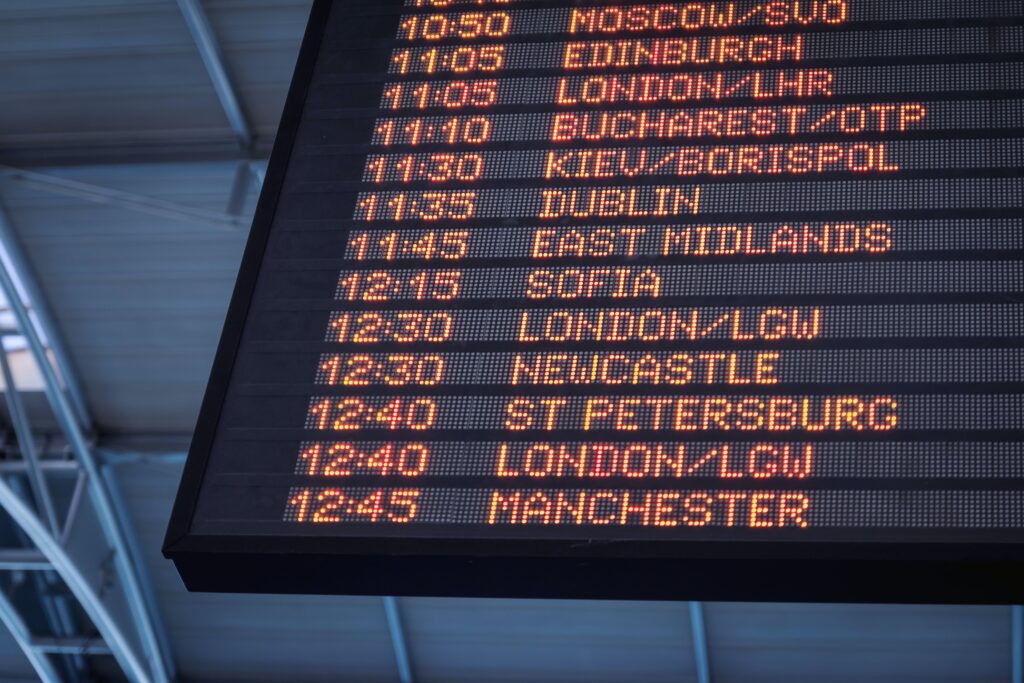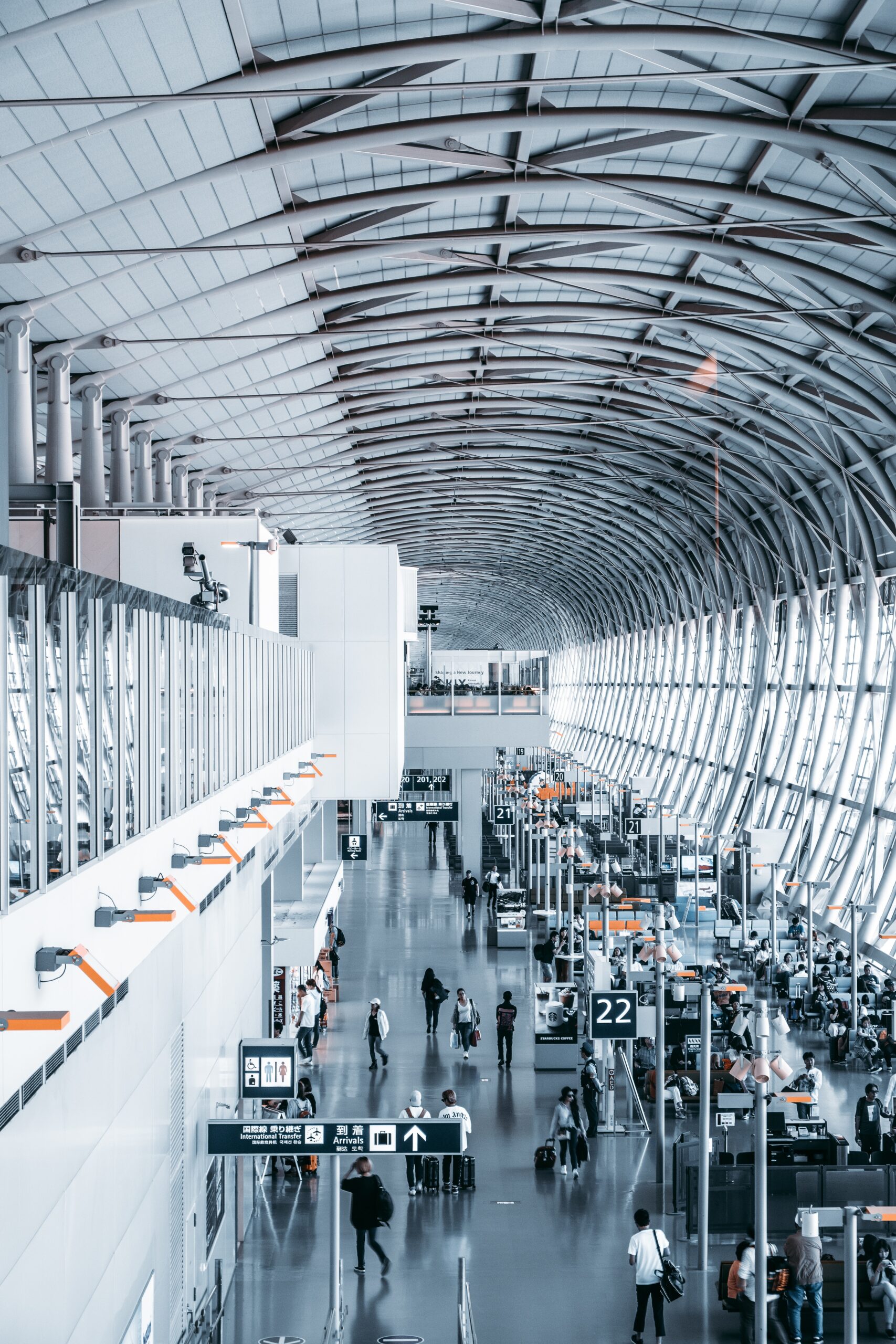Rwanda Transportation Guide
Rwanda Transportation Guide: Transportation blends taxis, moto-taxis, and buses. Planes connect cities, ensuring efficient travel amid the country’s scenic landscapes.


Rwanda Transportation Guide – International Airports
Rwanda has one major international airport, which serves as the primary gateway for travelers arriving in the country. This airport is well-connected to various international destinations. The main international airport in Rwanda is:
Kigali International Airport (IATA: KGL):
Kigali International Airport, also known as Kanombe International Airport, is the main airport serving Rwanda.
It is located in the capital city, Kigali, and is situated in the northeastern part of the city.
Kigali International Airport is the largest and busiest airport in Rwanda, handling both domestic and international flights.
It serves as a vital transportation hub for tourists, business travelers, and residents traveling internationally.
National Airports
In addition to Kigali International Airport, Rwanda has several domestic airports and airstrips located throughout the country. These national airports and airstrips provide convenient access to various regions of Rwanda. Here are some of the national airports and airstrips in Rwanda:
Kamembe International Airport (IATA: KME):
Kamembe International Airport, also known as Cyangugu Airport, is located in the town of Kamembe in the Western Province of Rwanda.
It serves as the main airport for the western part of the country, including the popular tourist destination of Lake Kivu and the surrounding areas.
Kamembe International Airport offers domestic flights to and from Kigali International Airport.
Ruhengeri Airport (IATA: RHG):
Ruhengeri Airport is situated near the town of Ruhengeri in the Northern Province of Rwanda.
It serves as an access point for travelers visiting the Volcanoes National Park, which is famous for its mountain gorilla trekking experiences.
The airport offers domestic flights to and from Kigali International Airport.
Gisenyi Airport (IATA: GYI):
Gisenyi Airport is located in the town of Gisenyi, which is also situated along the shores of Lake Kivu in the Western Province.
It provides access to Gisenyi and the surrounding area, which is known for its scenic beauty.
Gisenyi Airport offers domestic flights to and from Kigali International Airport.
Kibuye Airport (IATA: KIE):
Kibuye Airport serves the town of Kibuye, which is another lakeside destination on the shores of Lake Kivu.
It offers domestic flights connecting Kibuye to Kigali International Airport.
Bugesera International Airport (Under Development):
Bugesera International Airport is a major ongoing airport development project located southeast of Kigali.
Once completed, it is expected to become Rwanda’s largest airport and a key international gateway.
Rwanda Transportation Guide – Trains
Rwanda was in the process of developing its railway infrastructure, particularly for cargo transport. Passenger train services were limited in Rwanda, and the country primarily relied on road transportation for both passengers and goods. However, there were ongoing efforts to revitalize and expand the railway network in the country, primarily for freight transport. Here are some key points regarding trains in Rwanda:
Limited Passenger Services: Rwanda’s passenger train services were relatively limited, and there were no extensive passenger train networks for daily commuter use.
Cargo Transport: The main focus of Rwanda’s railway development efforts was on cargo transport. Railways were seen as a more efficient means of transporting goods, particularly from the port of Dar es Salaam in Tanzania to Rwanda.
Northern Corridor: Rwanda is part of the Northern Corridor, a transport route that includes railways and highways connecting the landlocked countries of Rwanda, Uganda, South Sudan, and the Democratic Republic of Congo (DRC) to the port of Mombasa in Kenya and the port of Dar es Salaam in Tanzania.


Rwanda Transportation Guide – Buses
Buses play a crucial role in Rwanda’s public transportation system, providing affordable and accessible means of transportation for both urban and rural residents. Buses are commonly used for daily commuting, intercity travel, and even long-distance journeys within the country. Here are some key aspects of buses in Rwanda:
Urban Transport:
In major cities like Kigali, buses are a common mode of urban transport. They provide essential transportation for residents, workers, and students.
Kigali, the capital city, has a well-organized public bus system with designated routes and stops.
Rural and Intercity Transport:
Buses are used for intercity travel, connecting various towns and cities across Rwanda.
Rural areas are also served by buses, allowing residents in remote regions to access essential services and markets.
Types of Buses:
Rwanda has a variety of buses, including minibuses, mid-sized buses, and larger coaches.
Minibuses are often used for short-distance urban routes, while larger buses and coaches are used for longer journeys between cities.
Payment and Fares:
Passengers typically pay a fare when boarding the bus. Fare payment methods may vary, and it’s advisable to carry small denominations of Rwandan Francs (RWF).
Bus fares are relatively affordable, making public transportation an accessible option for many residents.
Bus Stations and Terminals:
Major cities and towns have bus stations and terminals where buses depart and arrive.
These terminals provide a central hub for passengers to board buses heading to different destinations.
Long-Distance Travel:
For long-distance travel within Rwanda and to neighboring countries, bus companies offer services that connect major cities and towns.
Travelers can also find bus services that connect Rwanda to other East African countries like Uganda, Kenya, and Tanzania.


We recommend
Rwanda travel tips
Our guide offers essential Rwanda travel tips and insights for an unforgettable journey. Plan your trip with us!
Rwanda Transportation Guide – SIM Cards
Getting a SIM card in Rwanda as a traveler is a straightforward process. Here’s a detailed guide:
Documentation: Bring your passport or a copy, as well as a passport-sized photo. Some providers may require this for registration.
Registration: Upon purchasing a SIM card, you’ll need to register it with your personal information. This is a standard procedure for regulatory purposes.
Coverage: Check the coverage of the chosen provider. While urban areas generally have good coverage, rural and remote locations may vary.
Types of SIM Cards: Providers offer various packages catering to data, calls, and SMS. Choose a plan that suits your needs, and inquire about any special tourist packages.
Top-Up: Recharge your SIM card with airtime to make calls or purchase data bundles. Top-up cards are available at most convenience stores.
Mobile Money: Many Rwandans use mobile money services like MTN Mobile Money and Airtel Money. Consider registering for these convenient services.
Data Packages: If you plan to use data, inquire about available data packages for a cost-effective internet connection.
Unlocking Phones: Ensure your phone is unlocked before arriving in Rwanda. If not, contact your home carrier to unlock it for international SIM card use.
Validity: Check the validity period of your SIM card. Some may expire if not used within a certain timeframe.
Emergency Services: Save local emergency numbers and your embassy’s contact information in case of unforeseen circumstances.
Wi-Fi Availability: While major cities and accommodations offer Wi-Fi, having a local SIM card ensures connectivity even in remote areas.
Roaming: Confirm international roaming charges with your home carrier. Using a local SIM is often more cost-effective.
Replacing a Lost SIM: Report a lost SIM card immediately to your provider. They can help you replace it with the same number.
Dual SIM Phones: If you have a dual SIM phone, you can keep your home SIM for calls from your home country while using a local SIM for data.
Currency Converter
Currency Converter EUR/USD: Sun, 1 Jun.
Unit Converter
Rwanda Transportation Guide – Maps
What map do you need?
Choose your destination
More information about this country







